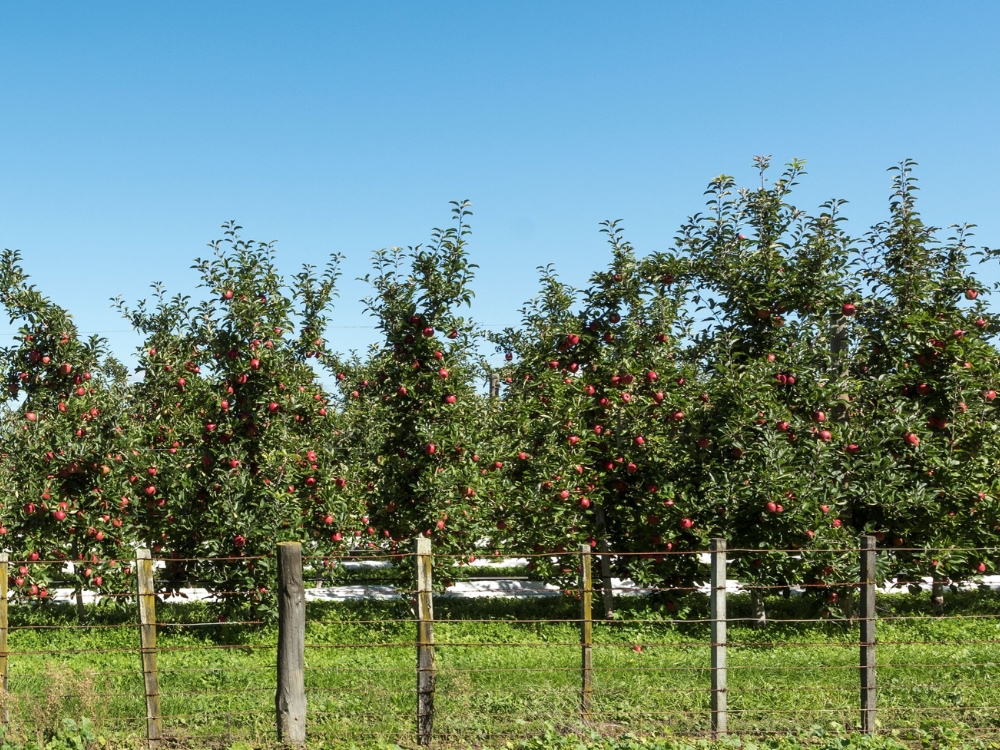Wednesday, 5 November 2025

Through the latest Marsden Fund funding, scientists at the Bioeconomy Science Institute have received funding for four new research projects, including a Council Award, and a Fast-Start grant. The projects are investigating a range of topics, including climate change adaptation in plants and fish, fruit structure genetics, Mātauranga associated with Māori rock art, and the benefits of endemic microorganisms.
The Marsden Fund Council Award receives $3 million of funding over three years; three research projects each receive approx. $940,000 of funding over three years; and the Fast-Start grant is $360,000 over three years, designed to support development of an early career researcher.
Bioeconomy Science Institute scientists are also collaborating on new projects looking at predator-prey evolution in marine ecosystems, a Fast-Start grant led by the Cawthron Institute,; measuring sap flow in plants, led by AUT; and new ways to protect honeybees, led by the University of Canterbury.
Marsden Fund Council Award - Reverse engineering the tikanga, Mātauranga, and historical context of Māori rock art (Dr Phil Novis)
This project will investigate Māori rock art (tuhituhi o neherā) – an ancient art form created by generations of Māori since the first voyagers arrived more than 700 years ago. A collaboration between the mana whenua communities who are the guardians of rock art sites, indigenous artists, and scientists, the project will draw on mātauranga Māori, archaeology, palaeoecology, and cutting-edge technologies to study Māori rock art. The objectives are to learn more about the original artists, their methods and tikanga (cultural protocols), to glean new knowledge about the changing ecosystems that are an integral aspect of the cultural landscapes surrounding the sites, to address degradation of the vulnerable original art, and to empower contemporary Māori art by employing the restored mātauranga in new works with a cultural mandate.
Living on the edge: epigenetic adaptation and remodelling at species range margins (Dr Maren Wellenreuther)
This research will investigate the role of epigenetics – changes to gene activity caused by factors outside of the DNA sequence – in adaptation to environmental change, and the speed with which these changes can take place, using snapper as a model. The findings will provide insights into species resilience to changing climates and help strengthen food security efforts.
Collaborators: Fisheries and Oceans Canada
Turning red: Repeated evolution of pigment pathways for stress tolerance in land plants (Dr Kevin Davies, Dr Nick Albert, Dr Christelle Andre)
This research will investigate how varied red pigment structures evolved across land plants to provide unique biochemical properties for adaption to challenging terrestrial habitats. The findings will provide insights into different mechanisms of stress-tolerance in plants and help research into crop plant adaptation to changing climates.
Collaborators: University of Waikato, Monash University (Australia), Boyce Thompson Institute (USA)
The genetic make-up of a composite trait: what shaped complex fruits? (Dr Jia-Long Yao)
This research will investigate the genetics involved in fruit structure, using apple as a model. The findings will provide insights into fruit development and support breeding of new fruit cultivars with enhanced quality and resilience.
Collaborators: Pennsylvania State University (USA)
Fast Start - Putting endemic plants under the microscope to understand how their microbiomes can enhance crop production (Dr Hanareia Ehau-Taumaunu)
This research will investigate endemic microbiomes – the communities of microorganisms that exist in natural New Zealand ecosystems, such as endemic forests – and whether these can support healthier crop plant production, using kiwifruit as a model. The findings will provide insights into the microbiome diversity available in New Zealand and the potential for these in crop production.
More information about the funding can be found on the Royal Society Te Apārangi website.
